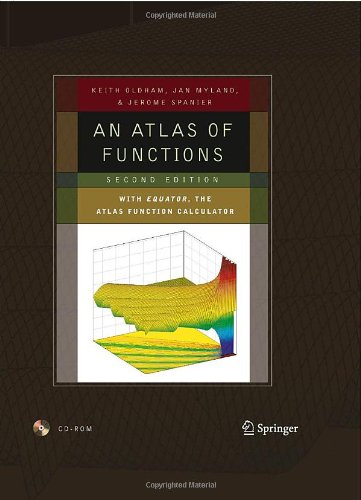

Most ebook files are in PDF format, so you can easily read them using various software such as Foxit Reader or directly on the Google Chrome browser.
Some ebook files are released by publishers in other formats such as .awz, .mobi, .epub, .fb2, etc. You may need to install specific software to read these formats on mobile/PC, such as Calibre.
Please read the tutorial at this link: https://ebookbell.com/faq
We offer FREE conversion to the popular formats you request; however, this may take some time. Therefore, right after payment, please email us, and we will try to provide the service as quickly as possible.
For some exceptional file formats or broken links (if any), please refrain from opening any disputes. Instead, email us first, and we will try to assist within a maximum of 6 hours.
EbookBell Team

4.0
86 reviewsThis second edition of An Atlas of Functions, with Equator, the Atlas Function Calculator, provides comprehensive information on several hundred functions or function families of interest to scientists, engineers and mathematicians who are concerned with the quantitative aspects of their field. Beginning with simple integer-valued functions, the book progresses to polynomials, exponential, trigonometric, Bessel, and hypergeometric functions, and many more. The 65 chapters are arranged roughly in order of increasing complexity, mathematical sophistication being kept to a minimum while stressing utility throughout. In addition to providing definitions and simple properties for every function, each chapter catalogs more complex interrelationships as well as the derivatives, integrals, Laplace transforms and other characteristics of the function. Numerous color figures in two- or three- dimensions depict their shape and qualitative features and flesh out the reader’s familiarity with the functions. In many instances, the chapter concludes with a concise exposition on a topic in applied mathematics associated with the particular function or function family.
Features that make the Atlas an invaluable reference tool, yet simple to use, include:
full coverage of those functions—elementary and "special”—that meet everyday needs
a standardized chapter format, making it easy to locate needed information on such aspects as: nomenclature, general behavior, definitions, intrarelationships, expansions, approximations, limits, and response to operations of the calculus
extensive cross-referencing and comprehensive indexing, with useful appendices
the inclusion of innovative software--Equator, the Atlas Function Calculator
the inclusion of new material dealing with interesting applications of many of the function families, building upon the favorable responses to similar material in the first edition.